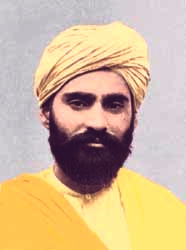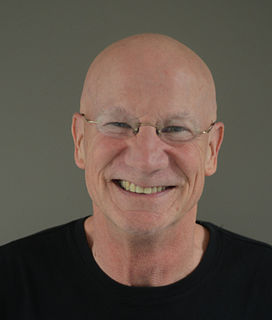A Quote by Christopher West
In Christ, man who made himself God encounters God who made himself man. Unrivaled self-importance and pride encounters unrivaled self-emptying and humility.
Quote Topics
Related Quotes
The ultimate difference between God's wisdom and man's wisdom is how they relate to the glory of God's grace in Christ crucified. God's wisdom makes the glory of God's grace our supreme treasure. But man's wisdom delights in seeing himself as resourceful, self-sufficient, self determining, and not utterly dependent on God's free grace.
By the cross we, too, are crucified with Christ; but alive in Christ. We are no more rebels, but servants; no more servants, but sons! "Let it be counted folly," says Hooker, "or fury, or frenzy, or whatever else; it is our wisdom and our comfort. We care for no knowledge in the world but this, that man hath sinned, and that God hath suffered; that God has made Himself the Son of Man, and that men are made the righteousness of God."
For the essence of sin is man substituting himself for God [Gen. 3:1-7], while the essence of salvation is God substituting himself for man [2 Cor. 5:21]. Man asserts himself against God and puts himself where only God deserves to be; God sacrifices himself for man and puts himself where only man deserves to be.
Perhaps the greatest barrier to revival on a large scale is the fact that we are to interested in a great display. We want an exhibition; God is looking for a man who will throw himself entirely on God. Whenever self-effort, self-glory, self-seeking or self-promotion enters into the work of revival, then God leaves us to ourselves.
In the present age, man proves his separation from his Creator by his spirit of self-sufficienc y and positive rejection of God. The present issue between God and man is one of whether man will accept God's estimate of him, abandon his hopeless self-struggle, and cast himself only on God who alone is sufficient to accomplish his needed transformation.
Your attitude should be the same as that of Christ Jesus: Who being in very nature God, did not consider equality with God something to be grapsed, but made himself nothing, taking the very nature of a servant, being made in human likeness. And being found in appearnace as a man, he humbled himself and becamse obedient to death-even death on a cross!
By His gracious condescension God became man and is called man for the sake of man and by exchanging His condition for ours revealed the power that elevates man to God through his love for God and brings God down to man because of His love for man. By this blessed inversion, man is made God by divinization and God is made man by hominization. For the Word of God and God wills always and in all things to accomplish the mystery of His embodiment.
Man is a fallen star till he is right with heaven: he is out of order with himself and all around him till he occupies his true place in relation to God. When he serves God, he has reached that point where he doth serve himself best, and enjoys himself most. It is man's honour, it is man's joy, it is man's heaven, to live unto God.
Pride takes innumerable forms but has only one end: self-glorification. That’s the motive and ultimate purpose of pride—to rob God of legitimate glory and to pursue self-glorification, contending for supremacy with Him. The proud person seeks to glorify himself and not God, thereby attempting in effect to deprive God of something only He is worthy to receive
Our passions are the chief means of self-preservation; to try to destroy them is therefore as absurd as it is useless; this would be to overcome nature, to reshape God's handiwork. If God bade man annihilate the passions he has given him, God would bid him be and not be; He would contradict himself. He has never given such a foolish commandment, there is nothing like it written on the heart of man, and what God will have a man do, He does not leave to the words of another man. He speaks Himself; His words are written in the secret heart.
If any man would come after me, let him deny himself." The disciple must say to himself the same words Peter said of Christ when he denied him: "I know not this man." Self-denial is never just a series of isolated acts of mortification or asceticism. It is not suicide, for there is an element of self-will even in that. To deny oneself is to be aware only of Christ and no more of self, to see only him who goes before and no more the road which is too hard for us. Once more, all that self denial can say is: "He leads the way, keep close to him.

































